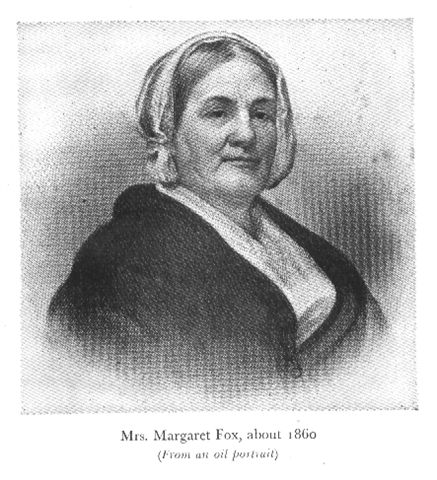I am here this day upon the Account of my Conscience, and not for any Evil, or wrong done to any Man, but for obeying Christ’s Doctrine and Commands … am I here Arraigned this day. Now you profess your selves to be Christians, and you own the Scriptures to be true… So I now Appeal to the witness of God in all your consciences, to judge of me according to that. Margaret Fell, March 1664
 Margaret Askew Fell Fox was a woman of undaunted courage. She lived through one of the most tumultuous times in English history. Through all of the upheavals in government and religious policies she kept a steady faith in God and His Word. She always put God first even if it meant going to prison. She strived for liberty of conscience.
Margaret Askew Fell Fox was a woman of undaunted courage. She lived through one of the most tumultuous times in English history. Through all of the upheavals in government and religious policies she kept a steady faith in God and His Word. She always put God first even if it meant going to prison. She strived for liberty of conscience.
Margaret Askew Fell Fox (1614-1702) lived through many changes in government. Since the time of Henry the Eighth (reigned 1509 to 1547) the church in England had been headed by the monarch. Henry broke with the pope and declared himself head of the Anglican church. To this day the monarch is still considered the head of the church.
Margaret grew up during the time of James I and Charles I. Both kings considered themselves the head of the Anglican church and neither tolerated dissenters.
When Charles I went too far by not allowing Parliament to meet, the Parliamentarians declared him a traitor and went to war against him. The Parliamentarians, led by Oliver Cromwell defeated the monarchists. The king, Charles I was beheaded in 1649.
In those days, church and state were not as separated as today. When King Charles and the royalists were in power the Anglican church had the ascent. When Cromwell and the Parliamentarians came to power and tried to form a Republican government, the Presbyterians had more power. Everything would switch back again to Anglicanism when the monarchy was restored in 1660 and Charles II came to power. These changes resulted in more or less toleration for other religions, mostly less.
Often minority religions were declared illegal and there was much persecution. It was during Charles II’s reign that the famous John Bunyan (Pilgrim’s Progress) was imprisoned for 11 years (1661-1672). Margaret and thousands of Quakers would be imprisoned. Margaret was tried and jailed twice for the sake of her conscience. We find this hard to believe in our day of a multitude of religions. But in the seventeenth century there was not much toleration among the various faiths. The ones who had the power did not like competition.
Margaret Askew Fell Fox was born in 1614 to wealthy parents. They were considered part of the landed gentry. Margaret was a bright child and her father saw to it that she and her sister were educated. Because of her social position she was able to marry a prominent lawyer, Thomas Fell. They were a close, affectionate couple and had eight children together, seven daughters and one son.
Thomas Fell climbed higher in social circles, becoming a Member of Parliament and  serving as Chancellor of the Duchy of Lancaster. During his absences for business purposes, Margaret managed their estate – Swarthmore Hall. Swarthmore Hall was located in a remote area in northern England and the lonely Margaret invited rich and poor alike to partake of her hospitality. Margaret especially enjoyed visitors who were seekers of God and loved the Bible as much as she did. One of the strangers that she entertained was George Fox.
serving as Chancellor of the Duchy of Lancaster. During his absences for business purposes, Margaret managed their estate – Swarthmore Hall. Swarthmore Hall was located in a remote area in northern England and the lonely Margaret invited rich and poor alike to partake of her hospitality. Margaret especially enjoyed visitors who were seekers of God and loved the Bible as much as she did. One of the strangers that she entertained was George Fox.
George Fox took the opportunity to stay with Margaret for a few days. He wanted to meet Judge Fell but would have to wait until later since the Judge was in London. Margaret listened to George Fox attentively and was persuaded that the Society of Friends, or Quakers, was true to the Scriptures. She would remain one of the most ardent supporters of Quakerism until her death.
Returning from the business trip to London, as Judge Thomas Fell was heading to Swarthmore Hall, he was stopped by his parish rector who warned him that his wife had been bewitched by a traveling preacher. At first Judge Fell was angry but changed his mind after Margaret and their seven daughters told him of their conversion experience. Judge Fell had confidence in his wife and could appreciate how much her life had changed. Margaret had become exuberant about her faith. Thomas Fell was pleased for her.
The judge did not want to leave the Anglican church, but he gladly gave Margaret permission to hold Quaker meetings in their home. Swarthmore would be the center for Quaker meetings in northern England until 1691 when a new meeting house was built nearby. Today Swarthmore Hall is used for retreats or other events.
Judge Fell died in 1658 and eleven years later, 1669, Margaret married George Fox. She was fifty-five years old and George was forty-five. They suited each other very well and were very happy but did not spend much time together. George was always traveling. And of course, both of them sent time in prison for their faith.
Besides holding meetings at Swarthmore, Margaret carried on a vast amount of correspondence with family, friends, prisoners, vicars, magistrates, judges, Cromwell, Charles II, William III, and William Penn. Margaret delivered many of the letters in person. In 1660, shortly after Charles II had been restored to the throne and promised more religious toleration, Margaret traveled with her oldest daughter to London to appeal for the release of Quaker prisoners, including George Fox.
Margaret spent four months in London meeting with Charles II sometimes as often as three times a week. Finally, George Fox and some other prisoners were released.
The reprieve did not last long. Soon laws were passed that forbade Quaker meetings. Over four thousand Quakers were imprisoned.
In 1663, Margaret was arrested for holding meetings at Swarthmore. She was brought to trial while four of her daughters watched in the courtroom. A magistrate held up a Bible and asked her to swear an oath that she would stop holding the meetings. Quakers do not take oaths because they take Christ’s command not to take oaths very seriously. (See Matthew 5:37.) Margaret responded, “If you ask me never so often, I answer you that the reason why I cannot take it is because Christ hath commanded me not to swear at all; I owe my allegiance and obedience to him…. I own allegiance to the King, as he is the King of England, but Christ Jesus is King of my conscience.”
The judge was frustrated that he could not win over Margaret Fell. He sentenced her to life imprisonment and complete forfeiture of her property. Margaret was terrified in the face of life in prison and for the lives of her now parentless children. But her courage remained steadfast. “Although I am out of the King’s Protection, yet I am not out of the protection of the Almighty God.”
 Margaret remained in prison for four years. She used this time to write many letters. She also wrote five books, including the one that is most widely read today, “Womens Speaking Justified, Proved, and Allowed of by the Scriptures.” This is a plea for the equality of women. It was published in 1666.
Margaret remained in prison for four years. She used this time to write many letters. She also wrote five books, including the one that is most widely read today, “Womens Speaking Justified, Proved, and Allowed of by the Scriptures.” This is a plea for the equality of women. It was published in 1666.
In October 1669, one year after her release from prison she married George Fox. She continued to hold meetings and write. She did not get to spend much time with her husband because of the amount of time that he traveled but she was willing to sacrifice for God and for the chance of living a life of service for Christ. George traveled to America, the Continent, and to all parts of England taking the news of the Gospel of light to thousands.
Unfortunately, Margaret’s only son, George Fell, was not happy with her marriage. He soon was scheming to get his mother’s estate. He accused his own mother of breaking the Conventicle Act of 1664, which forbade meetings of more than five people of any religious group outside of Anglicanism. Margaret was tried and found guilty and spent a year in prison. Margaret was imprisoned in April, 1670. Her son George Fell died in October 1670.
The Quakers continued to suffer continuous persecution. George Fox was imprisoned again. He also suffered severe health problems. George Fox died in January, 1691. Margaret faithfully carried on the work until her death in 1702. In all of her years she put God first. Not even in the face of persecution, imprisonment, or confiscation of property would she deny her faith. No one – king, judge, jury, her son, or anyone else could make her compromise her beliefs. From the moment she accepted the Quaker tenets until her last breath she remained faithful. Her motto for her life could easily have been the Scripture verse written in one of her last letters in 1700.
Now, I have set before you Life (Deut. 30:19), and Death, and Desires you to Chuse Life, and God and his Truth,

